Photos: First Bermuda Climate Risk Forum Held
Michael Bloomberg joined Premier David Burt and climate champions from science, business and government at the first Bermuda Climate Risk Forum highlighting policy and pathways to a cleaner environment.
Some 150 delegates turned out for yesterday’s inaugural event, presented by Bermuda Tourism Authority [BTA] in association with the Bermuda Institute for Ocean Sciences [BIOS] and the Bermuda Championship, an official PGA TOUR event running today through Sunday.
BTA CEO Kevin Dallas, Mike Bloomberg, Premier David Burt, and US Consul General Connie Dierman
“Tourism—not just in Bermuda, but around the globe—finds itself at the core of this critical issue, so it makes sense for a destination marketing organisation like the BTA to encourage conversation and action around climate science,” said BTA CEO Kevin Dallas.
“We thank all our partner stakeholders and hope to continue working with them to build this event into a powerful annual platform to brainstorm positive action and solutions.”
Mr Bloomberg, the three-term New York City mayor, best-selling author, and global leader on climate change kicked off the event with a 45-minute keynote conversation with Premier Burt, discussing a range of topics, including the importance of reducing carbon emissions to the role Bermuda can play in the global climate-change conversation.
“Bermuda experiences the direct impact of storms and it’s also home to a global insurance industry, so the effects of climate change on the balance sheet are seen right away,” noted Mr Bloomberg.
“The island is a place with a strong connection to the ocean and good science research is done here. I think Bermuda can also be an example in terms of preparation: its infrastructure is built to high standards, so a storm typically won’t be as damaging as it might elsewhere.”
Their session was followed by two expert panels focused on the challenges of climate change and sea-level rise facing islands, and ways the global insurance community, including Bermuda’s re/insurance hub, could play a key part in mitigating risk and building resilience.
Moderated by Dr. Mark Guishard, Director of the Risk Prediction Initiative at BIOS, the first panel featured top scientists and disaster responders discussing climate’s particular threat to islands and how nations like Bermuda can highlight lessons in resilience.
The session featured BIOS President and CEO Dr. Bill Curry, National Disaster Coordinator Steve Cosham, author Angela Burnett Penn, the Climate Change Coordinator for the Disaster Vulnerability Reduction Project [DVRP] in St Lucia, and Dr. Chia-Ying Lee, an Assistant Research Professor at Columbia University’s Lamont-Doherty Earth Observatory and fellow at Lamont’s Center for Climate and Life.
“BIOS is pleased to have partnered with the BTA and the PGA TOUR to deliver cross-cutting messages about the risks we face from recent and future changes in climate,” said Curry. “We look forward to continued collaborations with policy experts, industry practitioners and fellow scientists to advance this important conversation.”
The second panel showcased what major reinsurers are doing to develop innovative financial instruments to build resilience against climate change, as well as the need to reduce the “protection gap” of uninsured regions of the world.
Moderated by Ariane West, Director of Structured Finance at Nephila Climate, the panel included Andrew MacFarlane of AXA XL, Lara Mowery of Guy Carpenter, John Huff of the Association of Bermuda Insurers & Reinsurers [ABIR], Jeffrey Manson of RenaissanceRe, and Roy Wright of the Insurance Institute for Business & Home Safety [IBHS].
The event also featured a special presentation about cutting-edge education programmes conducted by BIOS, Bermuda’s 116-year-old marine research facility in Ferry Reach, St. George’s. Delegates were later ferried across the Great Sound to the scenic 18th hole of Port Royal Golf Course to watch the Championship’s Pro-Am tournament.
Read More About
Category: All, Environment, News

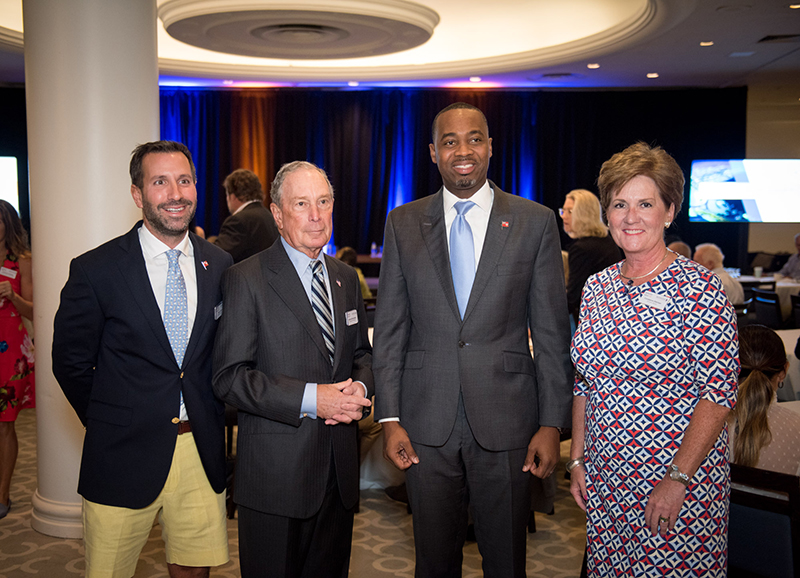
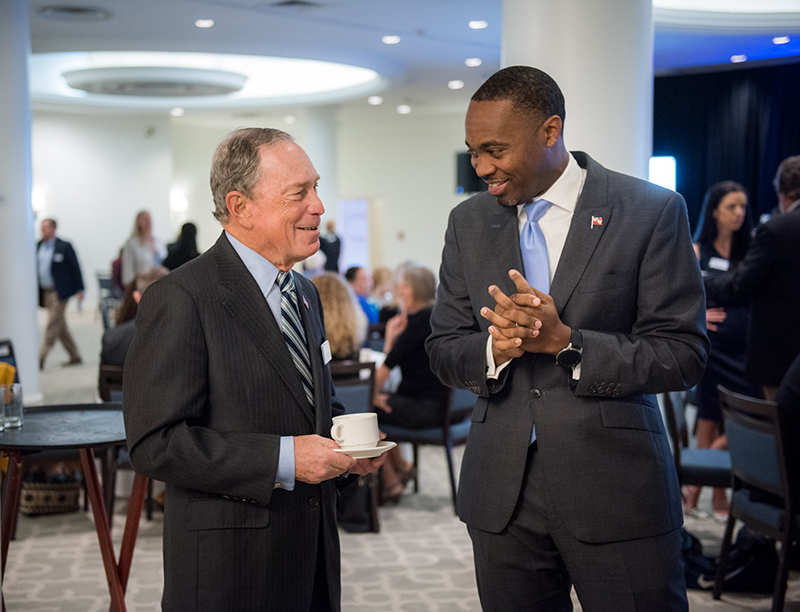
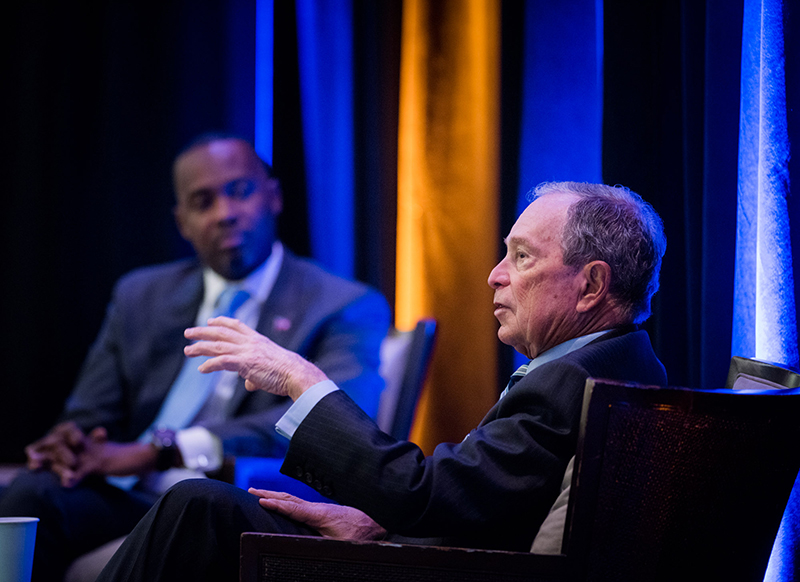

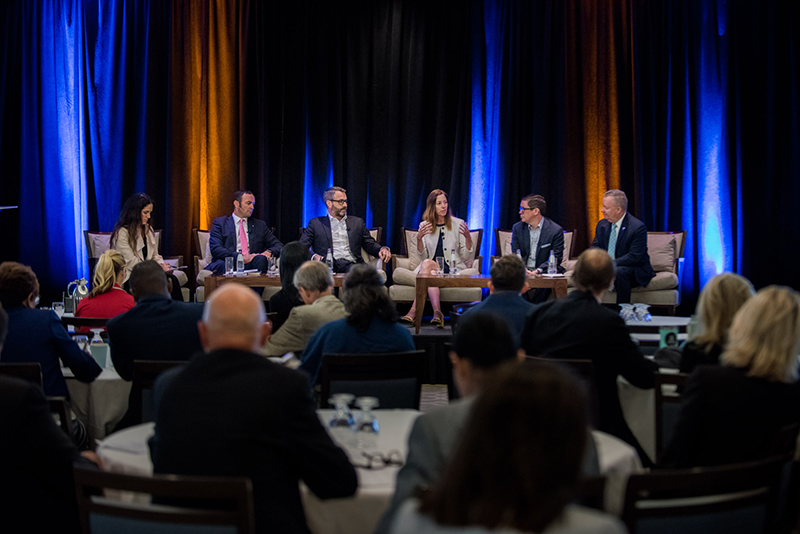
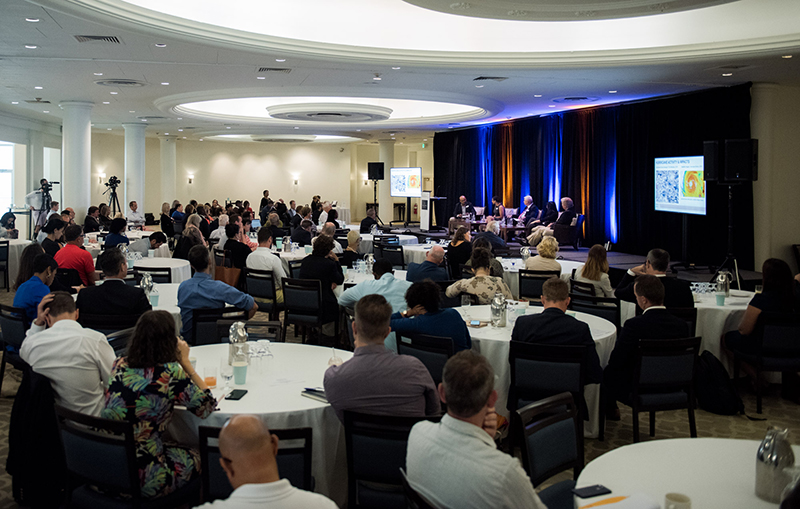


Good to see no expense was spared. Reminds me of Davos doing climate change.
Perhaps we should have a small levy on business so we can relocate our people as the waters rise. That will be much more devastating than any hurricane. We will lose huge areas of land and our ports.